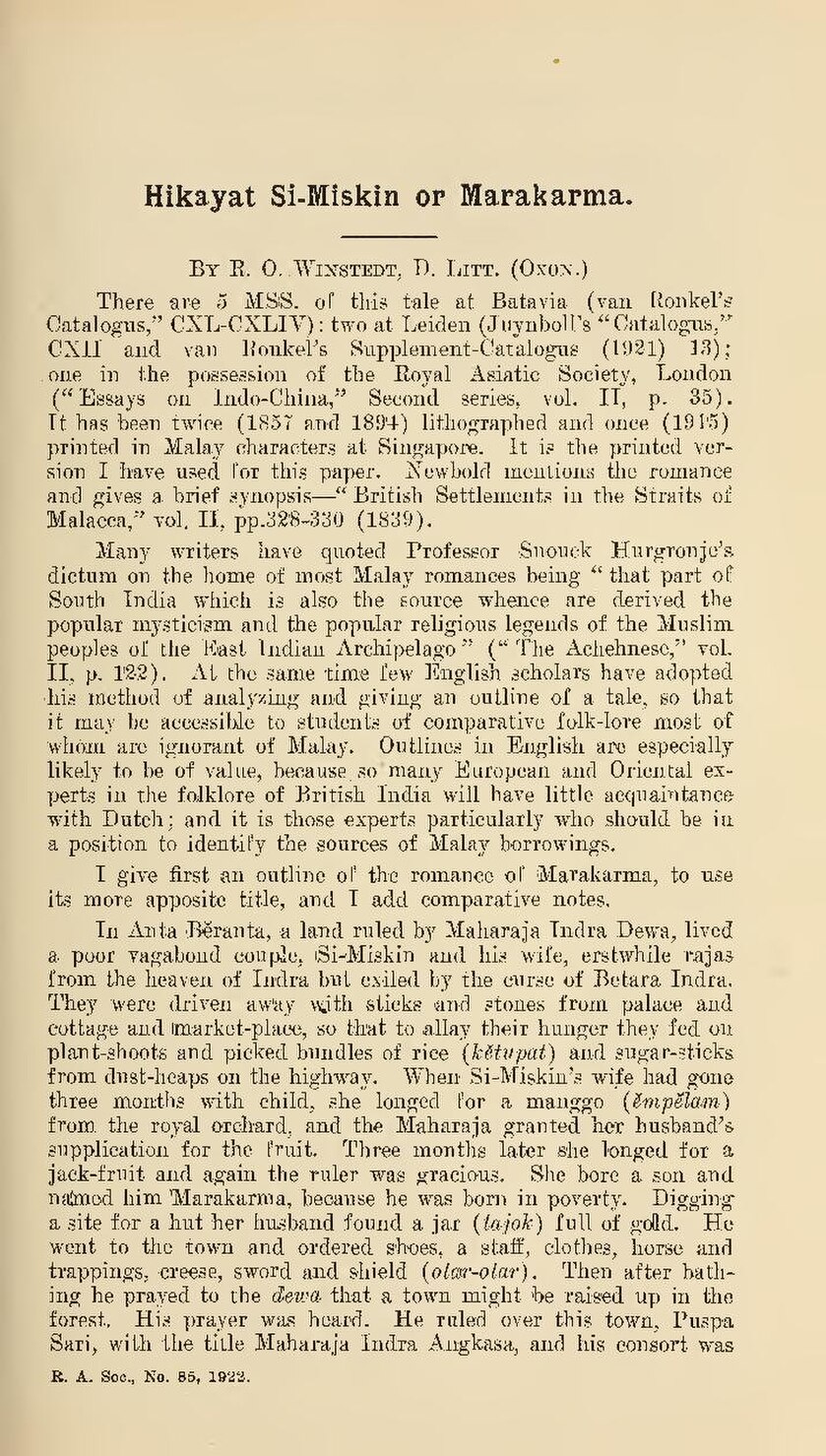Hikayat Si-Miskin or Marakarma.
BY R. O. WINSTEDT, D. LITT. (OXON.)
There are 5 MSS. of this tale at Batavia (van Ronkel's Catalogus," CXL-CXLIV): two at Leiden (Juynboll's "Catalogus," CXII and van Ronkel's Supplement-Catalogus (1921) 13); one in the possession of the Royal Asiatic Society, London ("Essays on Indo-China," Second series, vol. II, p. 35). It has been twice (1857 and 1894) lithographed and once (1915) printed in Malay characters at Singapore. It is the printed version I have used for this paper. Newbold mentions the romance and gives a brief synopsis—"British Settlements in the Straits of Malacca," vol. II, pp.328-330 (1839).
Many writers have quoted Professor Snouck Hurgronje's dictum on the home of most Malay romances being "that part of South India which is also the source whence are derived the popular mysticism and the popular religious legends of the Muslim peoples of the East Indian Archipelago" ("The Achehnese," vol. II, p. 122). At the same time few English scholars have adopted his method of analyzing and giving an outline of a tale, so that it may be accessible to students of comparative folk-lore most of whom are ignorant of Malay. Outlines in English are especially likely to be of value, because so many European and Oriental experts in the folklore of British India will have little acquaintance with Dutch; and it is those experts particularly who should be in a position to identify the sources of Malay borrowings.
I give first an outline of the romanec of Marakarma, to use its more apposite title, and I add comparative notes.
In Anta Bĕranta, a land ruled by Maharaja Indra Dewa, lived a poor vagabond couple, Si-Miskin and his wife, erstwhile rajas from the heaven of Indra but exiled by the curse of Betara Indra. They were driven away with sticks and stones from palace and cottage and market-place, so that to allay their hunger they fed on plant-shoots and picked bundles of rice (kětupat) and sugar-sticks from dust-heaps on the highway. When Si-Miskin's wife had gone three months with child, she longed for a manggo (ĕmpĕlam) from the royal orchard, and the Maharaja granted her husband's supplication for the fruit. Three months later she longed for a jack-fruit and again the ruler was gracious. She bore a son and named him Marakarma, because he was born in poverty. Digging a site for a hut her husband found a jar (tajok) full of gold. He went to the town and ordered shoes, a staff, clothes, horse and trappings, creese, sword and shield (olar-olar). Then after bathing he prayed to the dewa that a town might be raised up in the forest. His prayer was heard. He ruled over this town, Puspa Sari, with the title Maharaja Indra Angkasa, and his consort was
